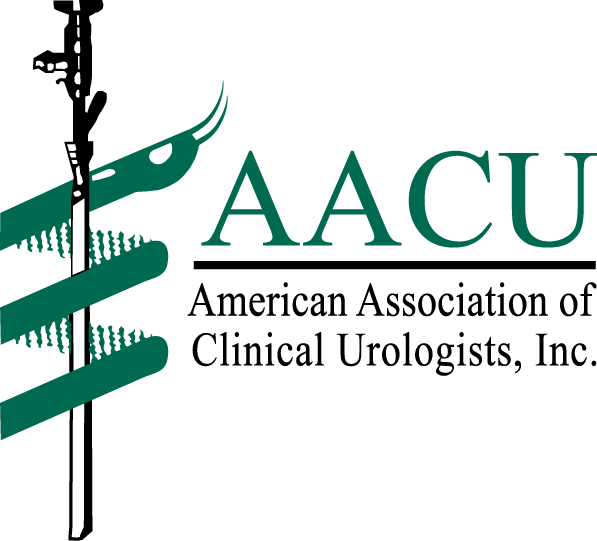CMS proposed rule shows room for improvement
"Overall, the 2020 Medicare payment proposal attempts to modernize the program and mitigate administrative burdens. The urologic community has identified room for improvement, however, including in the area of facilitating participation in advanced payment models," writes the AACU's Ross E. Weber.
Valerie Potapova - stock.adobe.com


Based on a partnership with Urology Times, articles from the American Association of Clinical Urologists (AACU) provide updates on legislative processes and issues affecting urologists. We welcome your comments and suggestions. Contact the AACU government affairs office at 847-517-1050 or info@aacuweb.org for more information.
In an annual fall ritual, just as students return to the classroom and football players take the field, the agency that administers the Medicare program receives comments on proposed provider payment rates for the next year.
This year, the Centers for Medicare and Medicaid Service (CMS) accepted nearly 42,000 submissions on revisions to the Medicare physician fee schedule (PFS) and Quality Payment Program (QPP). One of the most significant changes is a holdover from last year's plan to consolidate evaluation and management codes. The agency also proposes to add and re-value codes that account for complex care, expand reimbursement for telemedicine services, and simplify performance reporting requirements. The agency must now review the comments before releasing a final rule, which is expected to be published in November.
The re-classification of evaluation and management visits became a year-long focus of the provider community after CMS proposed consolidating the five-tier payment system into one payment rate. After scaling back and delaying the implementation of its own plan, CMS has now tentatively accepted providers' recommendations to maintain the five-tier system for established patients and moving to a four-tier system for new patients.
In a letter to CMS Administrator Seema Verma, AACU President Mark Edney, MD, MBA, suggested the new framework will "more accurately reflect the significant time and medical decision-making that [urologists] provide to patients via face-to-face, primarily non-procedure-based, cognitive care."
Also from the AACU: Transition to value-based care requires MACRA reform
To pay for this change, CMS plans to cut payments to several non-physician providers, including clinical social workers (-4%), psychologists (-7%), and physical therapists (-8%). Representatives of these professions emphatically reject the cuts and warn that these front-line providers will ultimately opt out of the Medicare program, thus compromising beneficiaries' access to care. In tying these cuts to an ongoing public health crisis, the Alliance for Physical Therapy Quality and Innovation said, "If CMS wants to reach the stated goal of decreasing opioid use, access to physical therapy should be expanded-not cut."
Separately addressing complex patient care, the 2020 Medicare payment proposal establishes separate coding and payment for Principal Care Management (PCM) services, which describe care management services for patients with a single, complex chronic condition. According to the AACU’s Dr. Edney, “These proposed new codes are well suited for the care management services provided by urologists for a variety of chronic conditions, including interstitial cystitis, chronic orchitis, bladder dysfunction, stress urinary incontinence, and many others.”
On the telemedicine front, the health care field applauded CMS's steady integration of digital medicine in the Medicare program, but the American Medical Association cautioned "against CMS’ assumption that all services that can be delivered via telehealth have already been covered." The AMA went on to urge CMS to "allow Medicare beneficiaries in urban locations to receive telehealth services."
Next:Significant changes to QPPCMS is also proposing significant changes to QPP that streamline reporting requirements with the goal of reducing administrative burdens. The proposal includes a simpler way to participate in the Merit-based Incentive Payment System (MIPS). The new framework, called the MIPS Value Pathways (MVPs), would transition reporting on many measures across the four performance categories (Quality, Cost, Promoting Interoperability, and Improvement Activities) to a system in which clinicians report on a smaller set of specialty-specific measures that are more closely aligned with Advanced APMs.
Read: Residency funding urgently needed to address work force shortage
These significant changes to the MIPS program are being proposed just 3 years after being established and will impose further financial hardship on physicians. Dr. Edney urged “CMS to offer the MVP framework on a voluntary basis, at least to start.”
Overall, the 2020 Medicare payment proposal attempts to modernize the program and mitigate administrative burdens. The urologic community has identified room for improvement, however, including in the area of facilitating participation in advanced payment models. According to Dr. Edney, CMS must “consider additional reforms, based on continued engagement with the provider community, that remove the barriers to coordinated, value-based care as soon as feasibly possible.”
Prior paid malpractice claims linked to increased risk of future claims
February 22nd 2023Based on 5- and 10-year study periods, physicians with single or multiple paid medical malpractice claims “were shown to have a greatly elevated risk of having additional paid claims during a future period,” the authors wrote.
Surprise billing regulation stuns providers, rejects congressional intent
November 17th 2021"The AACU joined 1 effort calling for the administration to remove the directive that arbiters anchor their determination to the qualifying payment amount, and instead let them consider all allowable information submitted by the parties to support their offer," says Ross E. Weber of the AACU.
